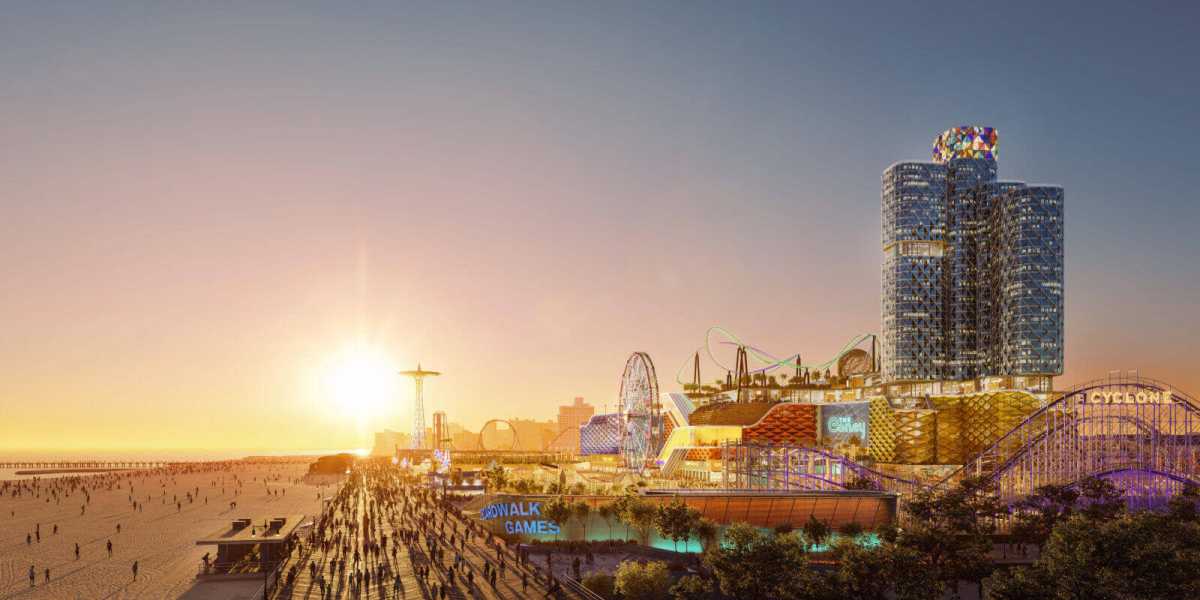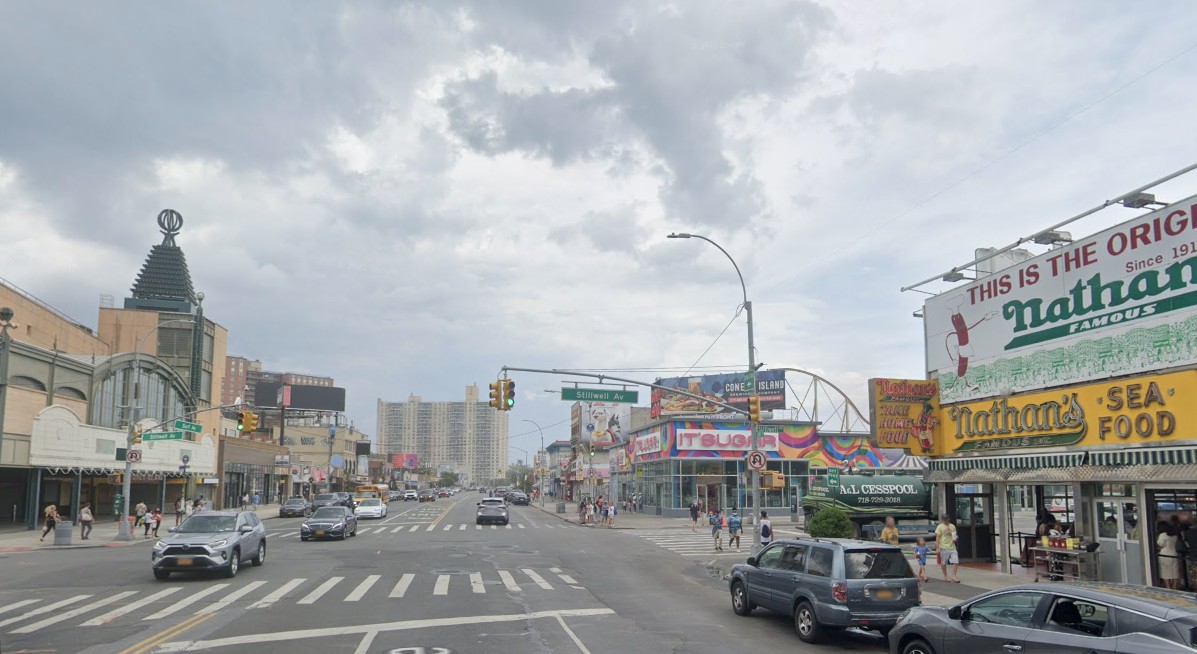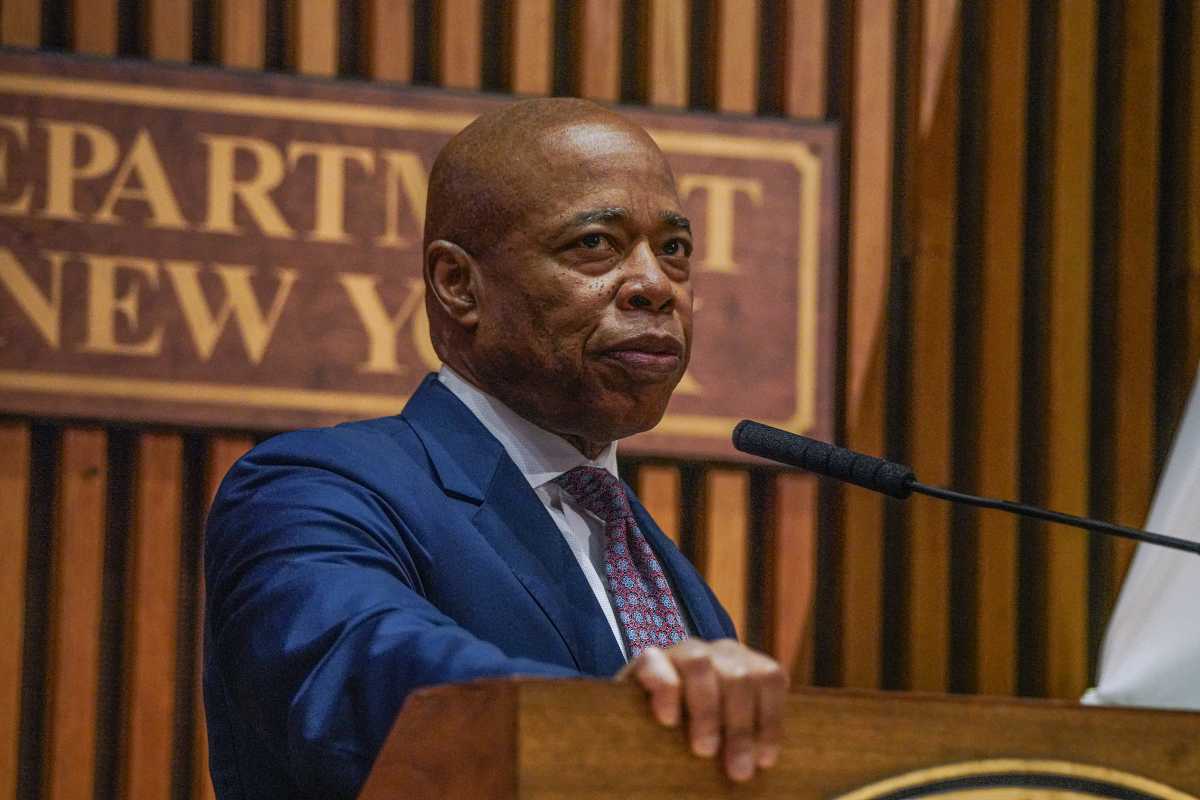Brooklyn Borough President Antonio Reynoso has shared all the public comments he received at a pair of March public forums regarding the proposed Coney Island casino.
More than 350 people — mostly from Coney Island and the surrounding neighborhoods – attended the events at the Coney Island YMCA, and many left written notes in addition to speaking out. The full breath of the comments Reynoso received had not previously been available to the public.
Reynoso said the goal of the forums was to give residents all of the information on the casino proposal process, and to better understand their needs and concerns about the project.
“I’m really grateful to the Coney Island community for coming out in force and really making sure their voices are heard,” Reynoso told Brooklyn Paper.
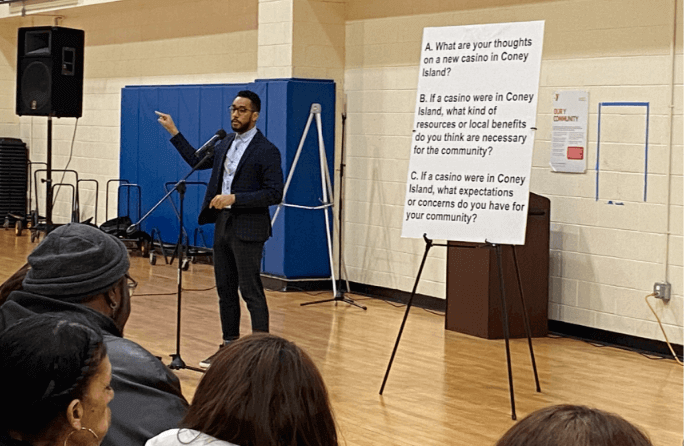
The beep posed three questions at the event.
1.) What are your thoughts on a new casino in Coney Island?
“I am against the casino. It will not benefit. Our community is extremely congested with new construction (affordable housing) traffic congestion,” one commenter said.
Others called the potential gambling hub an “awful idea” that could bring in added traffic congestion, difficulty parking, an addition to gambling, drugs, further disadvantaging the neighborhood.
“This area is already overcrowded — tall buildings constantly being built in place of smaller homes. Bringing more people and more cars. There is no easy access to CI (Coney Island) as it is. Roads are clogged and loud. It’s more polluted. NO to casinos! Please do not allow this,” another critic said.
Other commenters are hopeful the casino would bring more jobs for local residents and therefore increase the general economic development of the area.
“Yes Casino! We need to boost our economy and get more jobs for [the] community,” they said.
2.) If a casino were located in Coney Island, what kind of amenities or local benefits do you think are necessary for the community?
The majority of responses included petitions for more jobs, solutions to the potentially increased traffic, more police presence and sanitation services, and investment in community agencies for the elderly and youth.
Reynoso said these questions gave locals an opportunity to share their opinion and also leave suggestions for developers, should a casino be built in Coney Island.
“I think that awards Coney Island the opportunity to let the operator know we don’t want it but if it’s here, don’t act like you didn’t hear us,” Reynoso said.
In June, a spokesperson on the pro-casino team announced the casino would bring in roughly 4,000 full time union jobs.
According to Robert Cornegy, one of the partners on the casino task force, the jobs would be within the hospitality, hotel and gaming realm, offering locals who have been detached from the ability to earn a decent wage year-round a chance to work 12 months out of the year in a “lucrative” industry, as previously reported by Brooklyn Paper.
At an open forum hosted by Community Board 13 on April 19, Michael DeLoach, another partner with the pro-gaming facility group, said the team is already looking to address traffic congestion by advocating for an oceanside ferry, express trains and more frequent train services.
3.) If a casino were in Coney Island, what expectations or fears do you have for your community?
Attendees shared concerns of property tax increases, increased crime and local small shops being threatened.
Reynoso said now that these comments have been shared publicly, the casino team has tons of valuable information to consider.
“They got a lot of information if they want to be a good neighbor and listen to the community,” he said. “I hope they’ve taken some of the comments here from Coney Island as seriously as they possibly could and adjust their proposal.”
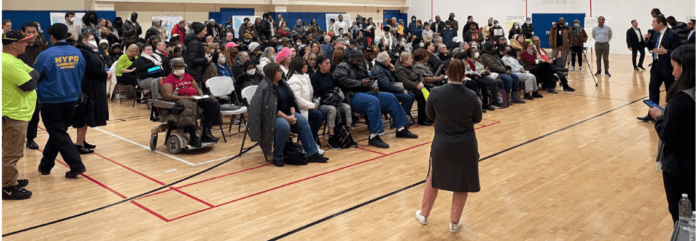
His report also details the casino license timeline, where the pro-casino team stands in the efforts, the approval process and stats on the neighborhood’s racial and economic makeup.
The team developing the Coney Island casino bid — made up of Thor Equities, Saratoga Casino Holdings and the Chickasaw Nation – threw their hat in the ring late last year with a $3 billion proposal. They are currently waiting for the State Gaming Facility Board to respond to their first round of questions, which were submitted on February 3.
Next in the application process, the team can submit another round of questions. After those are answered they will be responsible for forming a Community Advisory Committee, who will later vote on the proposal. The CAC will consist of six members – with one each appointed by the governor, mayor, and the applicable state Senator, Assembly Member, Borough President, and City Council Member.
Reynoso’s open forum was ahead of the game as future CAC’s will also be responsible for soliciting written comments and holding public hearings on the proposals.
“What I hope to get from this is the operators know what we want and that the community had an opportunity to have their voices heard,” he said. “I think they have an advantage over other operators in which they know exactly what the local community is looking for or not looking for.”


